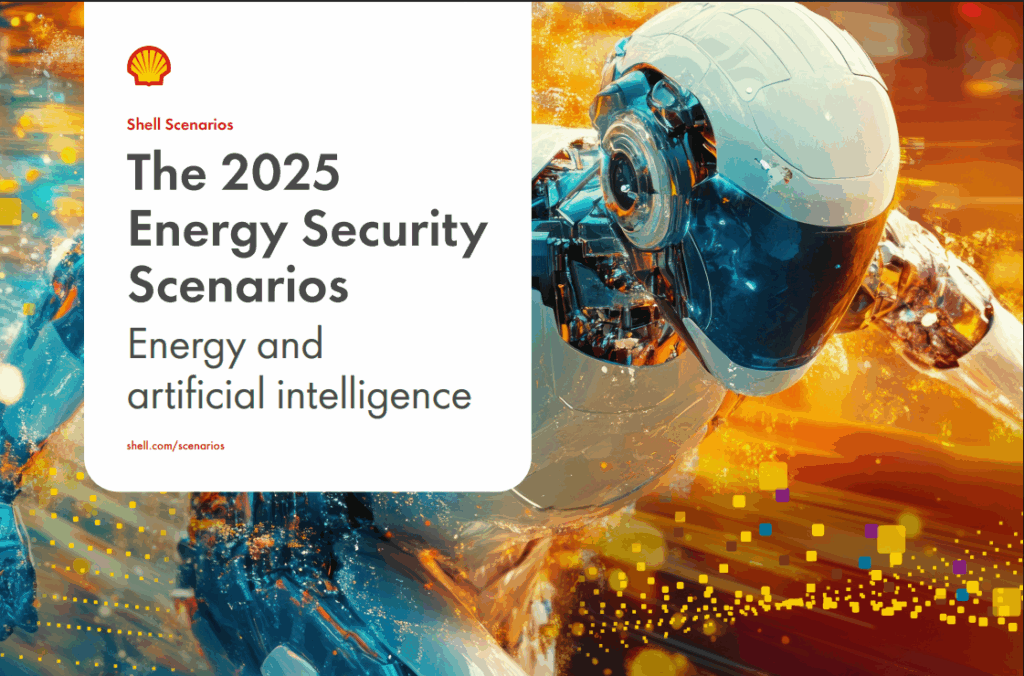WORLD ECONOMIC FORUM, 1º Agosto de 2025
Nos complace presentarles a Geraldine Wessing , analista política principal de Shell, quien ha preparado una colección de artículos interesantes, adaptados específicamente para usted.
Los cambios políticos y sociales son evidentes hoy en día a medida que los países se esfuerzan por lograr una nueva era de crecimiento económico, garantizar la seguridad energética y abordar el cambio climático. ¿Acelerarán las tecnologías de inteligencia artificial la transición energética o su impacto se verá limitado por las tensiones geopolíticas y sociales?
Si bien el enfoque de los responsables de la toma de decisiones parece gravitar actualmente hacia las prioridades nacionales de crecimiento económico y seguridad energética, el Equipo de Escenarios de Shell argumenta que una consideración clave para el futuro panorama político es reconocer que no existe ningún escenario en el que el clima esté fuera de la agenda .
Los cambios que se están haciendo evidentes en los patrones climáticos globales a medida que el cambio climático genera una creciente presión sobre los responsables políticos y la sociedad para que respondan. Y esto ocurre en todos los Escenarios de Seguridad Energética de Shell 2025 .Pero de diferentes maneras. La incorporación de tecnologías avanzadas nos desafía no solo a profundizar nuestra comprensión del crecimiento económico (y, con él, la demanda energética) que pueden impulsar, sino también a comprender cómo pueden acelerar aún más el impulso de la descarbonización global.
Esperamos que estos artículos le resulten interesantes y valiosos a medida que explora los avances y oportunidades clave en el cambio hacia una energía más limpia y renovable.
The transformative potential of AI depends on energy

There has been a step change in the capabilities of artificial intelligence (AI), driven by
falling computation costs, a surge in data availability and technical breakthroughs. AI is the science of making machines capable of learning to perform tasks that traditionally required human intelligence. AI is emerging as a general-purpose technology, much like electricity.
Today, it can generate text and videos, accelerate scientific discovery in fields like medicine or materials science, make manufacturing robots smarter and more productive, drive commercial taxis in complex city landscapes, and detect threats to critical infrastructure.
In the past few years, AI has gone from an academic pursuit to an industry with trillions of dollars of market capitalisation and venture capital at stake. The market capitalisation of AI-related firms in the S&P 500 has grown by around USD 12 trillion since 2022. While there are several uncertainties about its uptake and impact, AI’s rapid development and huge potential have made it central to corporate strategies, economic policies and geopolitics.
However, there is no AI without energy; at the same time, AI has the potential to transform the energy sector. Affordable, reliable and sustainable electricity supply will be a crucial determinant of AI development, and countries that can deliver the energy needed at speed and scale will be best placed to benefit. Training and deploying AI models takes place in large and power-hungry data centres. A typical AI-focused data centre consumes as much electricity as 100 000 households, but the largest ones under construction today will consume 20 times as much.
The rise of artificial intelligence

When Shell published The Energy Security Scenarios in March 2023, the
focus of the world was on high energy prices, with the cost of electricity at
record levels in much of Europe.
ChatGPT was four months old at the time and while it is barely the tip of the artificial intelligence (AI) iceberg, it has nevertheless been a game-changer in terms of public
awareness of a new technology wave.
Faced with the question of what the rise of AI might mean for the energy system, we again make use of scenario analysis. At Shell, scenario analysis plays a key role in
creating context and growing understanding around energy system, technology, geopolitical and social trends.
Scenarios are an exploration of how the world could possibly evolve under different sets of assumptions. The process of creating scenarios involves considering different possible futures, some of which may seem unlikely or even surprising. The value to Shell of producing scenarios is to help senior management think about the long-term
challenges the business could face. In this way, scenarios may influence the company’s strategy – as one of many inputs. But scenarios are not expressions of Shell’s strategy
or business plan. Shell scenarios are informed by data, constructed using models, and they contain insights from leading experts in relevant fields.




